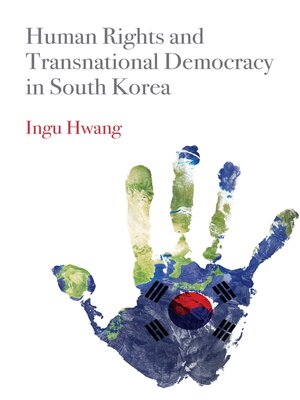Human Rights and Transnational Democracy in South Korea
ebook ∣ Pennsylvania Studies in Human Rights
By Ingu Hwang

Sign up to save your library
With an OverDrive account, you can save your favorite libraries for at-a-glance information about availability. Find out more about OverDrive accounts.
Find this title in Libby, the library reading app by OverDrive.



Search for a digital library with this title
Title found at these libraries:
| Library Name | Distance |
|---|---|
| Loading... |
Drawing on previously unused or underutilized archival sources, this book offers the first account of the historical intersection between South Korea's democratic transition and the global human rights boom in the 1970s. It shows how local pro-democracy activists pragmatically engaged with global advocacy groups, especially Amnesty International and the World Council of Churches, to maximize their socioeconomic and political struggles against the backdrop of South Korea's authoritarian industrialization and U.S. hegemony in East Asia. Ingu Hwang details how local prodemocracy protesters were able to translate their sufferings and causes into international human rights claims that highlighted how U.S. Cold War geopolitics impeded democratization in South Korea. In tracing the increasing coalitional ties between local pro-democracy protests and transnational human rights activism, the book also calls attention to the parallel development of counteraction human rights policies by the South Korean regime and US administrations. These counteractions were designed to safeguard the regime's legitimacy and to ensure the US Cold War security consensus. Thus, Hwang argues that local disputes over democratization in South Korea became transnational contestations on human rights through the development of trans-Pacific human rights politics.
Human Rights and Transnational Democracy in South Korea critically engages with studies on global human rights, contemporary Korea, and U.S. Cold War policy. By presenting a bottom-up approach to the shaping of global human rights activism, it contributes to a growing body of literature that challenges European/U.S. centric accounts of human rights advocacy and moves beyond the national and mjinjung (people's) framework traditionally used to detail Korea's democratic transition.







